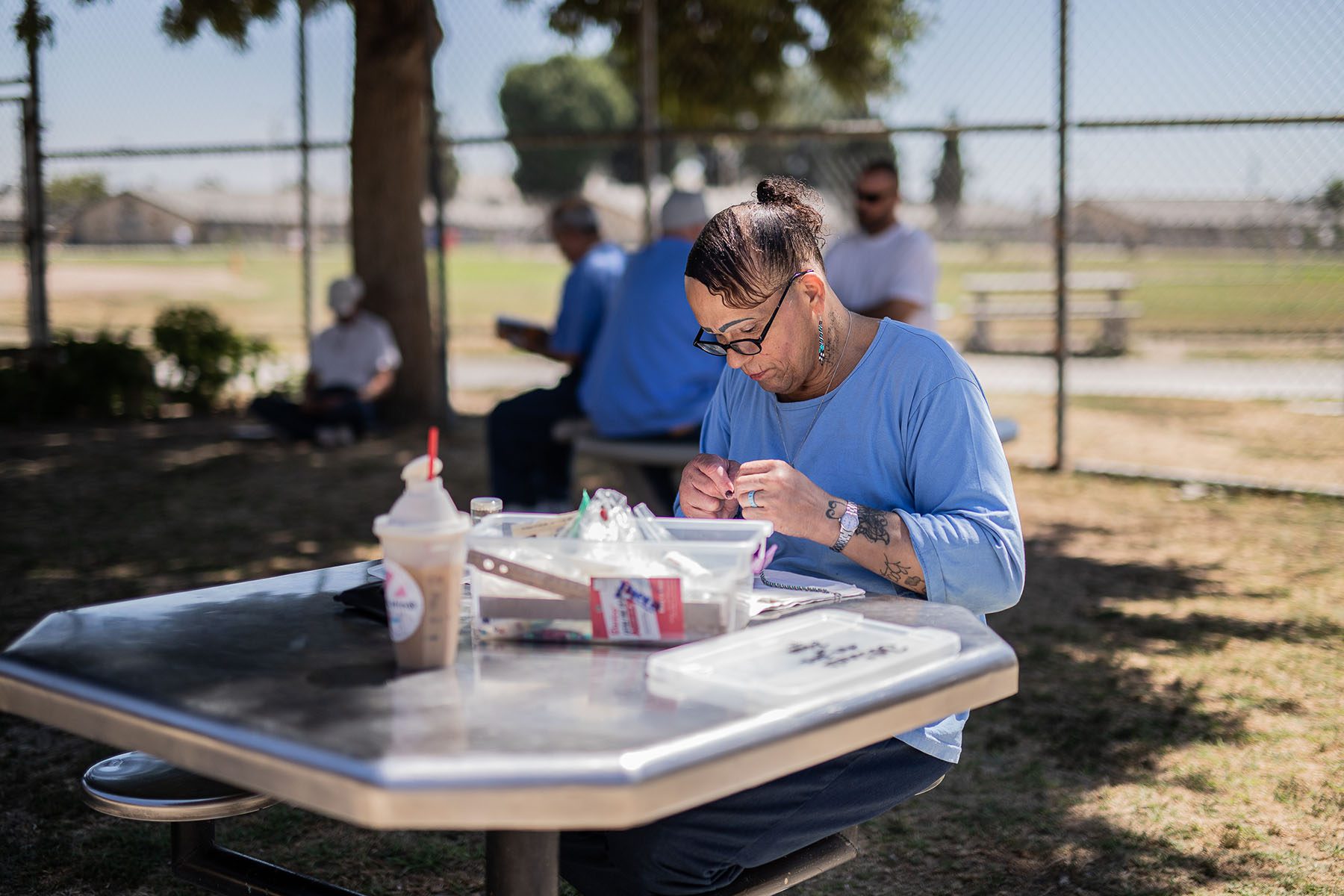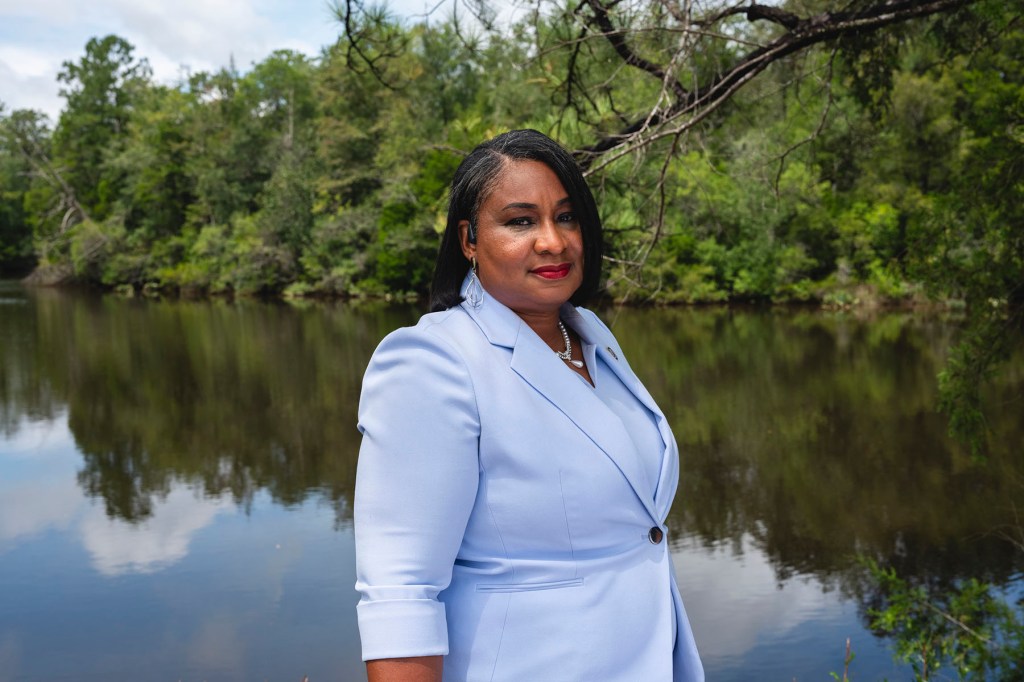The Americans with Disabilities Act (ADA) extends protections to people with gender dysphoria, a federal appeals court found this week. The opinion, issued Tuesday, marks the first time any federal appellate court has considered whether gender dysphoria — distress experienced by many, but not all, transgender people due to their body not aligning with their gender — should be a protected disability under the ADA.
The opinion enables trans people living with gender dysphoria to use federal disability laws to protect them if they live in states covered by the U.S. Court of Appeals for the Fourth Circuit — Maryland, Virginia, West Virginia, North Carolina and South Carolina. Other courts could agree with the precedent, although they’re not obligated to do so.
The details of the case brought to the court dealt with abuse that trans prisoners face behind bars in the United States, often because they are not housed according to their gender identity. But, experts say, the consequences of the opinion are far-reaching and give trans people a new powerful tool in fights over their civil rights — in workplaces, prisons, schools and hospitals.
Protection under the ADA is a powerful tool because of how the law requires reasonable accommodations for people with disabilities — it doesn’t just mandate non-discrimination. That opens up a world of possibilities for lawsuits brought against anti-trans discrimination, possibilities that go beyond what the Equal Protection Clause, Title VII or Title IX can offer, experts say.
“This really is a landmark case. It’s probably been over two decades in the making by lawyers, trans lawyers, trans clients [and] advocates,” said Kevin Barry, interim dean and law professor at Quinnipiac University School of Law.
Protections granted under the ADA for trans people with gender dysphoria may look like getting a week off from work while recovering from gender-affirming surgery, or taking the morning off for counseling related to gender transition, Barry said. Trans prisoners in particular face “horrific discrimination” when trying to access hormone therapy, surgery or correct housing, he said — and being able to make a claim under the ADA grants them a new avenue to make a case for those rights.
Tuesday’s decision by the Fourth Circuit stemmed from a lawsuit brought by Kesha Williams, a trans woman who says that prison staff harassed her, misgendered her, denied her hormone treatment and improperly housed her with men while she was incarcerated in a Virginia detention center. The Fairfax County Sheriff’s Office in Virginia, which oversees the detention center that Williams was held in, declined to comment, citing the ongoing litigation.
The federal appeals court reversed the previous dismissal of Williams’ ADA claims and sent her case back to the United States District Court for the Eastern District of Virginia. The state can petition for a full court rehearing in front of the Fourth Circuit, or Virginia could ask the Supreme Court to review whether the federal appeals court decision was correct.
“But right now, we have the law of the land in the Fourth Circuit, at least,” said Chris Erchull, staff attorney at GLBTQ Legal Advocates & Defenders (GLAD).
Trans people who want to be considered protected under the ADA must show that they are being medicated for gender dysphoria. And while not all trans people experience that dysphoria, or are able to access gender-affirming care, it is still a significant win for trans rights, and for attorneys that have been making this same argument — and winning cases based on this argument — in courts across the country for years.
Lawyers bringing disability discrimination claims for clients with gender dysphoria are not arguing that being transgender is a disability, or that being trans reflects on anyone’s ability to accomplish certain things, Erchull said.
“What we do mean to say is that people with gender dysphoria experience prejudice, are subject to stereotypes and live in a world that’s not accommodating,” he said.
The argument that ADA protections cover transgender people notched its first legal win in 2017, when a federal district court in Pennsylvania recognized gender dysphoria as a disability under the ADA. That case followed years of pressure from lawyers and advocates, said Barry, who worked on the ADA Amendments Act of 2008 to broaden protections and include transgender people. The arguments go as far back as 2002, when Jennifer Levi at GLAD made the first case arguing for a trans client to be covered under Massachusetts’ law against disability discrimination, Barry and Erchull noted.
The Williams decision is orders of magnitude more impactful than that 2017 case, because it binds all district courts in the Fourth Circuit, Barry said. The decision should also provide precedent to other circuit courts across the country.
Joshua Block, senior staff attorney with the ACLU’s LGBTQ & HIV Project, said the precedent set by this decision could aid legal fights over states attempting to enact gender-affirming health care bans or exclusions — especially due to how some states try to split hairs on who their laws are actually affecting.
“A fight that we constantly have … is we say, by excluding this health care, you’re discriminating against trans people. And they say, no we’re not discriminating based on trans status, we’re just discriminating based on this diagnosis of gender dysphoria. And if the ADA applies, then that’s not a viable response … because it’s a protected disability,” he said.
The Fourth Circuit court’s decision is also significant within the world of disability law, said Doron Dorfman, associate professor at Seton Hall Law School, who specializes in disability and health law. Strongly connecting gender dysphoria to impairment, as it’s used in disability law to guarantee protections for people living with disabilities, is a tactic he has not seen used much in cases backing transgender rights.
“This decision affirms the rights of transgender people with gender dysphoria, in our rights under federal disability laws,” said Ezra Ishmael Young, who teaches constitutional law at Cornell Law School.
In a statement, Williams’ attorney, Joshua Erlich, noted that the court’s holding applies to anyone seeking accommodations for gender dysphoria in employment or other contexts, and said: “We’re thankful that the Fourth Circuit ruled in her favor and we are excited to get back into court to vindicate Kesha’s rights.”






